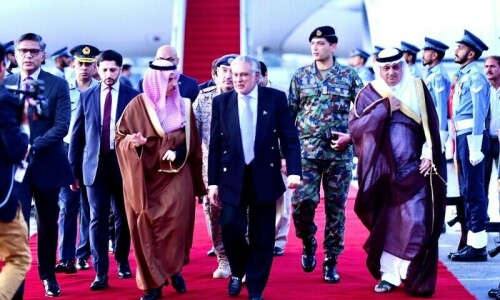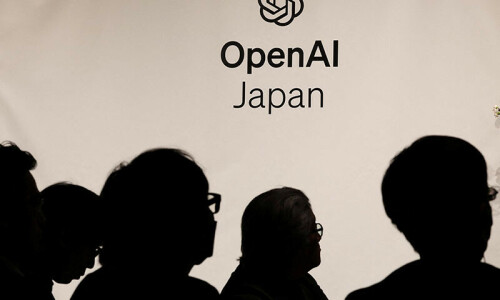The government has given the go-ahead to five consortiums, including Exxon Mobil, Royal Dutch Shell and Mitsubishi, to progress with their liquefied natural gas (LNG) terminal plans, a minister told Reuters on Friday.
The move comes on the heels of the arrests of two business executives involved in building the country's previous LNG terminals, cooling sentiment in the industry.
Pakistan is seen as a big growth market for the global LNG industry as domestic gas production slips in tandem with a growing industrial economy hungry for gas.
But an anti-corruption drive by Prime Minister Imran Khan led to the arrests of a former boss of Engro, which built the first import terminal, and the chief of another company associated with a second terminal.
Power and Petroleum Minister Omar Ayub Khan downplayed any impact the arrests may have had on investors' sentiment, saying the interest from multinationals spoke for itself.
“That is a ringing endorsement that (our) policies are clear and transparent,” he said. “It's a competitive market.”
The groups approved to progress are Tabeer Energy, a unit of Mitsubishi, Energas with partner Exxon; Pakistan GasPort and commodities trader Trafigura; Engro with partner Shell, and Gunvor with Pakistani conglomerate Fatima.
Tabeer Energy, Engro and Energas already announced plans for the terminals which will be Floating Storage and Regasification Unit (FSRUs) vessels. These can be newbuild or converted LNG tankers, speeding up the delivery of the import projects.
Exxon and Shell did not respond to requests for comment. Mitsubishi has project details on Tabeer Energy's website. Engro, Fatima and GasPort were not immediately reachable for a comment.
Trafigura declined to comment on the specific project but said it was “committed to grow and expand its existing regas (regasification) capacity” in Pakistan.
The five groups must submit plans for the terminals to the ministry of ports and shipping by November 5 for approval, but cabinet has already approved them, Khan said, adding they could be in operation within two to three years.
While the consortiums will pay for the construction of the terminals and royalty fees, Pakistan's contribution will be to fund the building of a $2 billion north-south pipeline to distribute the gas, and storage facilities, he said.
Significant dent
Pakistan is chronically short of gas for power production and to supply manufacturers such as fertiliser makers, hobbling the country's economy.
Its two LNG plants have a capacity of 4.5 million tonnes a year (mtpa) each. Khan said a third 4.5 mtpa terminal could start next year. Imports amounted to 6.7 mtpa in 2018 and are set to rise to 7.9 mtpa this year, according to Refinitiv data.
The new terminals “will make a significant dent in the gas shortage,” Khan said.
But the under-utilisation of one terminal points to a structural problem in Pakistan's energy industry, analysts have said, which is characterised by subsidised but dwindling domestic gas rivalling more expensive LNG.
“I think they are assessing the demand as the second LNG terminal is currently underutilised,” one industry source said. “Domestic gas is cheaper and LNG is expensive. Plus we have some coal plants which are cheaper than RLNG fired power plants.”
The fertiliser industry, a large consumer of gas, has suffered from a steep increase in government-set prices, Sher Shah Malik, executive director of Fertiliser Manufacturers of Pakistan Advisory Council, told Reuters.
Two of Pakistan's urea plants lack gas to run regularly and one closed last year, forcing Pakistan to import fertiliser. Malik said LNG, priced at international benchmarks, was often too expensive for fertiliser companies pointing to a need to tap new domestic gas reserves.
“We are heading for very difficult times,” he said. “If nothing happens, we'll be high and dry.”













































